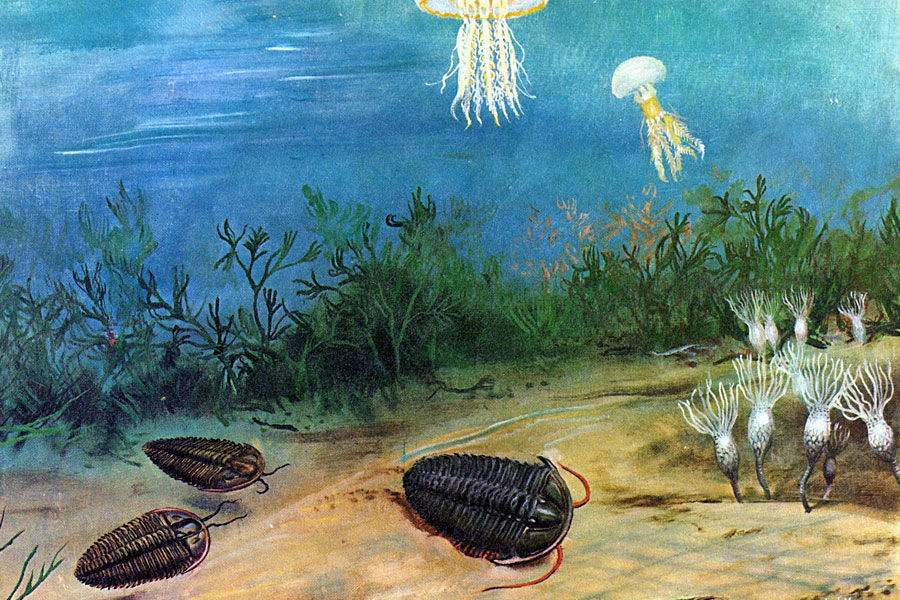Fred Hoyle and his colleague Chandra Wickramasinghe further eroded enthusiasm for panspermia by suggesting that outer space brought us not only life but also many diseases such as flu and bubonic plague, ideas that were easily disproved by biochemists.
我们已经在第三章里提到,弗雷德·霍伊尔和他的同事钱德拉·威克拉马辛格认为,外层空间不但给我们带来了生命,而且带来了许多疾病,如流感和腺鼠疫,这就进一步削弱了胚种说的影响。生物化学家们很容易驳斥那些观点。
Whatever prompted life to begin, it happened just once. That is the most extraordinary fact in biology, perhaps the most extraordinary fact we know. Everything that has ever lived, plant or animal, dates its beginnings from the same primordial twitch. At some point in an unimaginably distant past some little bag of chemicals fidgeted to life. It absorbed some nutrients, gently pulsed, had a brief existence.
无论是什么事导致了生命的开始,那种事只发生过一次。这是生物学一最非同对常的事实,也许是我们所知道的最不寻常的事实。凡是有过生命的东西,无论是植物还地动物,它的始发点都可以追溯到同一种原始的抽动。在极其遥远的过去,在某个时刻,有一小囊化学物质躁动一下,于是就有了生命。它吸收营养,轻轻地搏动几下,经历了短暂的存在。

This much may have happened before, perhaps many times. But this ancestral packet did something additional and extraordinary: it cleaved itself and produced an heir. A tiny bundle of genetic material passed from one living entity to another, and has never stopped moving since. It was the moment of creation for us all. Biologists sometimes call it the Big Birth.
这么多情况也许以前发生过,也许发生过多次。但是,这位老祖宗小囊干了另一件非同寻常的事:它将自己一分为二,产生了一个后代。一小代遗传物质从一个生命实体转移给了另一个生命实体,此后就这样延续下去,再也没有停止过。这是个创造我们大家的时刻。生物学家有时候将其称之为“大诞生”。
Wherever you go in the world, whatever animal, plant, bug, or blob you look at, if it is alive, it will use the same dictionary and know the same code. All life is one, says Matt Ridley.
“无论你到世界的什么地方,无论你看到的是动物、植物、虫子还是难以名状的东西,只要它有生命,它就会使用同一部词典,知道同一个代码。所有的生命都是一家。”马特·里德利说。













